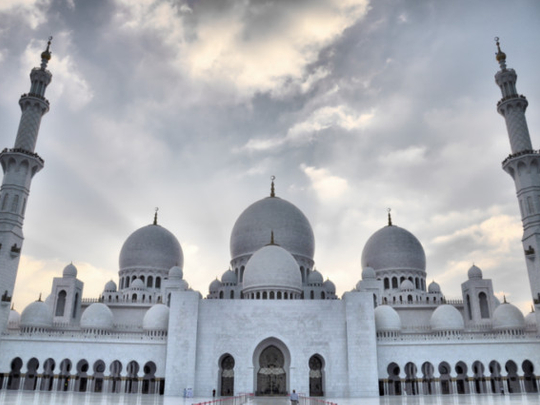
Abu Dhabi: A unified Hijri calendar of 1439, the first of its kind, was launched on Monday at the Shaikh Zayed Grand Mosque.
The new UAE’s lunar calendar is based on the lunar cycle and it is a manifestation of close interaction of science, Sharia and society, said Ahmad Juma Al Za’abi, Deputy Minister of Presidential Affairs and chairman of the council of trustees of the Shaikh Zayed Grand Mosque.
“The unified lunar calendar was prepared in keeping with Sharia and scientific principles and will provide the Hijri date and different prayer times for each and every city and remote area across the country,” Al Za’abi told Gulf News.
The launching ceremony saw calendars printed for Abu Dhabi, Dubai and Sharjah. “All emirates will be provided with the unified calendar and they have the freedom to publish it in whichever form and design they like,” Al Za’abi added.
Al Za’abi noted that the UAE’s new calendar is based on accurate astronomical calculations, but may differ from the dates which are determined by the moon sighting.
The Islamic calendar is a lunar calendar whose time reckoning is tied to the moon phases. Each month lasts for a full lunation, which is the time span from one new moon to the next.
This moon cycle encompasses all the phases of the moon.
Astronomical observation
The timing of the months in the Islamic calendar is based on astronomical observation.
A new month can only begin after a waxing crescent moon is observed shortly after sunset. The waxing crescent moon is the moon phase which starts right after a new moon.
Unlike other calendar systems that use leap days or leap months to synchronise the calendar with the solar year, the Islamic calendar is completely detached from astronomical seasons marked by the equinoxes and solstices.
An Islamic year consistently falls about 11 days short of the solar year.
For that reason, the Islamic calendar cannot be used for agriculture or other activities traditionally linked to the seasons, and most Muslim countries officially use the Gregorian calendar as their civil calendar alongside the Hijri system.







